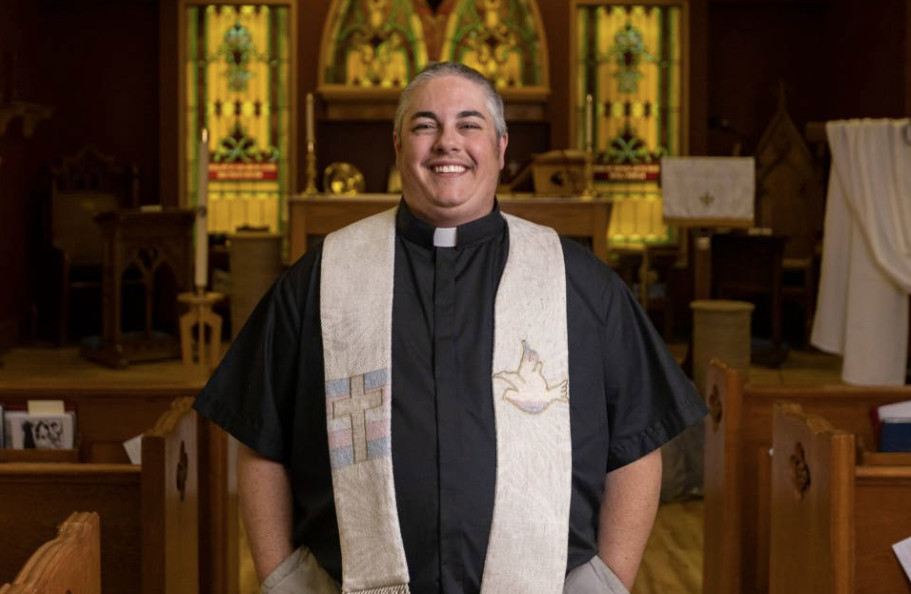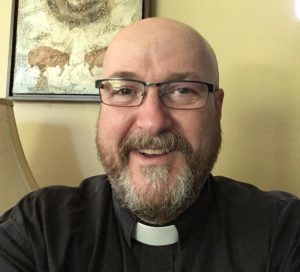 Rev. Theo Robinson, a transgender priest in the Diocese of Rupert’s Land, is one of the people responsible for producing the newly adopted liturgies for gender transition and affirmation.
Rev. Theo Robinson, a transgender priest in the Diocese of Rupert’s Land, is one of the people responsible for producing the newly adopted liturgies for gender transition and affirmation.
Robinson is delighted that it reaffirms we are an inclusive church.
The bishop of Rupert’s Land, Geoff Woodcroft, is also excited by the prospect of using the liturgy for what, undoubtedly, will be a flood of candidates eager to fill his church’s deserted pews to partake of the new offering.
Woodcroft is so enamoured of his progressive openminded omnierudite pieties (poop™ for short), he is bent on exporting them to those whom he regards as less enlightened than himself, specifically Ugandans.
From here:
At the same time Woodcroft commended the new liturgy for use by churches in the Diocese, he sent a letter to Stephen Kaziimba, Primate of Uganda, condemning his recent decision to champion that government’s new law criminalizing homosexuality.
“We are outraged that a member church of the Anglican communion could recklessly betray Christ’s teaching to love, and blatantly violate The United Nations Universal Declaration of Human Rights,” Woodcroft wrote in the letter, which was also sent to Justin Welby, archbishop of Canterbury and head of the worldwide Anglican Church.
“We are deeply saddened and disturbed to know that Ugandan LGBTTQ+ people, their families and allies must live in prisons of isolation formed by fear,” he said, adding “the disciples of the Diocese of Rupert’s Land hear God’s call to care for God’s children in every time and place.”


 Woodcroft, 57, says he is “overwhelmed by the generous expression of the diocese” and surprised by the numbers of votes he received. He was elected on the fifth ballot, after receiving 48 votes from clergy and 75 from the laity. “It’s an absolute thrill,” he says.
Woodcroft, 57, says he is “overwhelmed by the generous expression of the diocese” and surprised by the numbers of votes he received. He was elected on the fifth ballot, after receiving 48 votes from clergy and 75 from the laity. “It’s an absolute thrill,” he says.